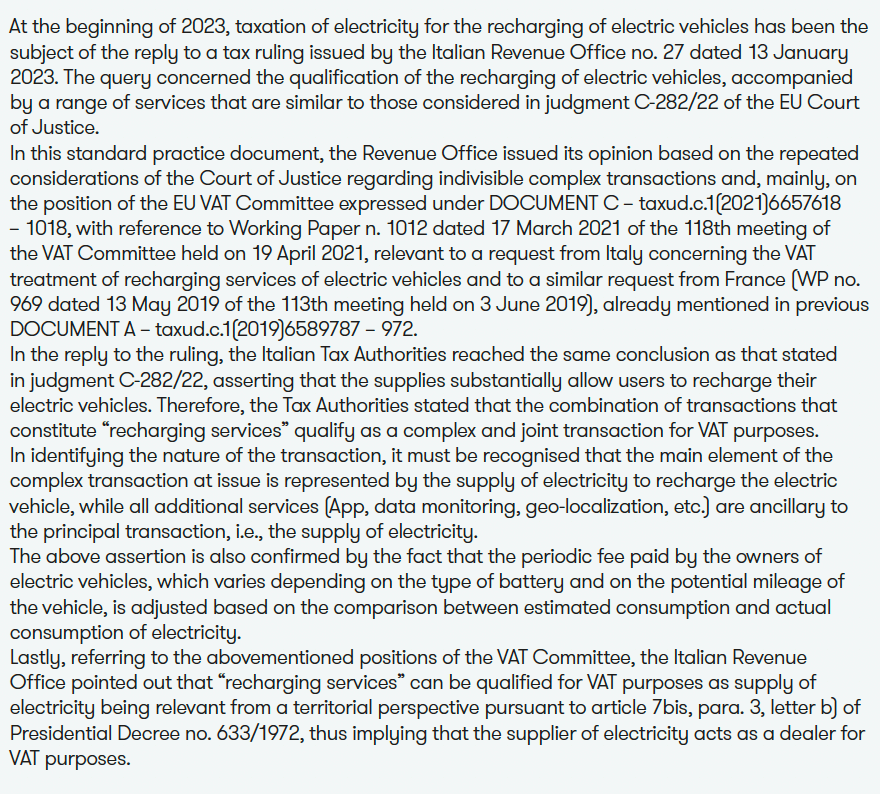-
Transactional advisory services
Find out more about the transactional advisory services of Grant Thornton Financial Advisory Services
-
Valuations
Find out more about the valuations services of Grant Thornton Financial Advisory Services
-
Mergers and acquisitions
Find out more about the merger and acquisition services of Grant Thornton Financial Advisory Services
-
Forensic and investigation services
Find out more about the forensic and investigation services of Grant Thornton Financial Advisory Services
-
Recovery & reorganisation
Find out more about the Recovery & reorganisation services of Grant Thornton Financial Advisory Services
-
Business risk services
Find out more about the business risk services of Grant Thornton Financial Advisory Services
-
Business consulting
Find out more about the business consulting services of Grant Thornton Financial Advisory Services
-
Capital market
Capital market
-
Corporate and business tax
Find out more about our corporate and business tax services.
-
Direct international tax
Find out more about our direct international tax services.
-
Global mobility services
Find out more about our global mobility services.
-
Indirect international tax
Find out more about our indirect international tax services.
-
Transfer pricing
Find out more about our transfer pricing services.
-
Litigation
Our lawyers and accountants can manage all defense measures provided not only by the Italian law, but also by EU regulations and conventions
-
Family business
Find out more about our Family business services.
-
Legal
The client can be assisted in every need and with the same care both on important operations or disputes and on simple matters

-
Back office outsourcing
Find out more about our Back office outsourcing services
-
Business process outsourcing
Find out more about our business process outsourcing services.
-
Compilation of financial statements
Find out more about our compilation of financial statements services.
-
Tax compliance
Find out more about our tax compliance services.
-
Electronic invoicing
Find out more about our electronic invoicing services
-
Electronic storage
Electronic storage is an archiving procedure that guarantees the legal validity of a digitally stored electronic document
-
Revaluation of corporate assets
Find out your civil and fiscal revaluation of tangible, intangible and financial assets
-
Human resources consulting
Find out more about our human resources consulting services.
-
Payroll
Find out more about our payroll services.
-
HR News
HR News the monthly information newsletter by Grant Thornton HR
-
Cybersecurity
GT Digital helps clients structure information security management internal functions, also through partially or totally outsourced functions
-
Agile and Programme Management
GT Digital provides support in the adoption and implementation of different portfolio management
-
Robotic Process Automation
Our “BOT Farm” can rely on digital workers able to help clients in routine activities, allowing employees to deal with more added-value activities
-
Data strategy and management
GT Digital can support clients in seizing the opportunities offered by Big Data, from the definition of strategies to the implementation of systems
-
Enterprise Resource Planning
We support clients in selecting the most appropriate ERP System according to their specific needs, helping them also understand licensing models
-
IT strategy
GT Digital supports clients in making strategic choices, identifying innovation opportunities, comparing themselves with competitors
-
IT service management
We can support with software selection and with the implementation of dedicated tools for the management of ICT processes
-
DORA and NIS 2
The entry into force of the DORA Regulation and NIS2 represents a major step towards the creation of a harmonised regulatory framework
Judgment of the European Court of Justice no. C-282/22 dated April 20, 2023, P. w W. case
By Mario Spera - Principal of Bernoni Grant Thornton
1. Introduction
With judgment C-282/22 dated April 20, 2023, P. w W. case, the European Court of Justice definitively solved – at least, for the moment – the question on whether the recharging of electrical vehicles should be legally qualified as a supply of goods or a supply of services. The dispute derived from the different ways in which electrical vehicles are “refuelled” compared to vehicles that use other types of fuel for their propulsion (such as, in general, gasoline, diesel, LPG, methane gas, etc.).
Doubts could be related to the fact that, in order to be realized, electric recharging requires a range of additional services – which were also identified by the Court of Justice, mainly consisting in: i) provision of recharging devices; ii) supply of electricity, whose price can vary depending on, among other things, “the duration of the recharging session, expressed in hours for slow-charge connectors or in minutes for quick-charge connectors, as well as on the standard of connector”; iii) provision of technical support; iv) provision of a special platform whereby users may reserve a particular connector and view their transaction and payment history, and of the option to use an “e-wallet” to pay the balance due for individual recharging sessions.
Moreover, P. w W. planned to create a specialized platform (“a website or an IT application”) to enable users “to reserve a particular connector and to view his or her transaction and payment history”. In this context, since the different transactions carried out by the users concerned would have been remunerated with a single price, there was the doubt on whether the transaction should have been qualified as a complex and indivisible transaction to be taxed as a whole with the application of the ordinary VAT rate, since it is not possible to identify a principal supply and its ancillary supplies.
2. The terms of the question
The Court of Justice focussed mainly on two elements, also pointed out by the Polish Tax Authorities – since Poland is the country directly concerned by the judgment –, which raised the question on which one should prevail on the other one, i.e.: the provision of devices allowing the fast recharging of electrical vehicles and the effective recharging of the vehicle.
According to one current of thought (which also P. w W.’s opinion was based on) “the primary intention of users of recharging stations is to use devices enabling them to recharge their vehicle quickly and efficiently”, thus asserting that the access to a recharging station is the principal supply. On the other hand, the Polish Tax Authorities would qualify the recharging of vehicles as the principal supply respect to the access to a recharging station (regardless of the procedure and time needed).
In this sense, the Court of Justice pointed out that “access to recharging devices thus constitutes the means by which a user may better enjoy the supply of electricity, which is the principal supply”.
3. Qualification of the transaction according to the EU Court
Under point 27 of the judgment, the EU Court, based on its case law interpretation, states “where a transaction comprises a bundle of elements and acts, regard must be had to all the circumstances in which that transaction takes place in order to determine, first, whether the transaction gives rise, for the purposes of VAT, to two or more distinct supplies or to one single supply and, second, whether, in the latter case, that single supply is to be regarded as a ‘supply of goods’ or a ‘supply of services’”. Therefore, each transaction must be considered as a separate and independent transaction, therefore “a transaction which comprises a single supply from an economic point of view should not be artificially split, so as not to distort the functioning of the VAT system”. This means “that there is a single supply where two or more elements or acts supplied by the taxable person to the customer are so closely linked that they form, objectively, a single, indivisible economic supply, which it would be artificial to split” (see point 28).
Moreover, a supply should be considered as ancillary when it does not constitute an end in itself but a means of better enjoying the principal supply.
Given the clear considerations above, the Court stated that, in the case under analysis, “a combination of transactions consisting of the supply of electricity for the purpose of recharging electric vehicles and the provision of various services” to be considered as ancillary to the principal supply can only lead to the conclusion that the supply of electricity (recharging) for electric vehicles is the principal transaction, which constitutes a “supply of goods”, since it consists in the transfer of the right to dispose of tangible property as owner (pursuant to art. 14, para. 1 of VAT directive no. 2006/112), also considering that electricity shall be treated as “tangible property”, according to art. 15, para. 1 of the same directive. Substantially, the interest of concerned users is that of recharging vehicles with the electricity needed to power it and “ancillary” supplies constitute a minimal aspect which necessarily accompanies the supply of electricity, and which does not change the nature of the principal supply in any way. Any price difference for fast direct current recharging does not imply a modification in the qualification of the above transaction.
One last interesting assertion of the Court concerns the provisions under directive no. 2014/94 on the deployment of alternative fuels infrastructure, which, under art. 1, establishes the minimum requirements for the building-up of alternative fuels infrastructure, including recharging points for electric vehicles, but has not the purpose “to lay down any rules regarding the treatment, from the point of view of VAT, of the supply of alternative fuels” (see point 36 of the judgment under analysis).
In conclusion, recharging of electric vehicles must be considered, for VAT purposes, as the principal supply and qualified as a supply of goods, while all other services related to recharging are merely ancillary supplies, therefore they will be taxed in the same way as the supply of electricity.

